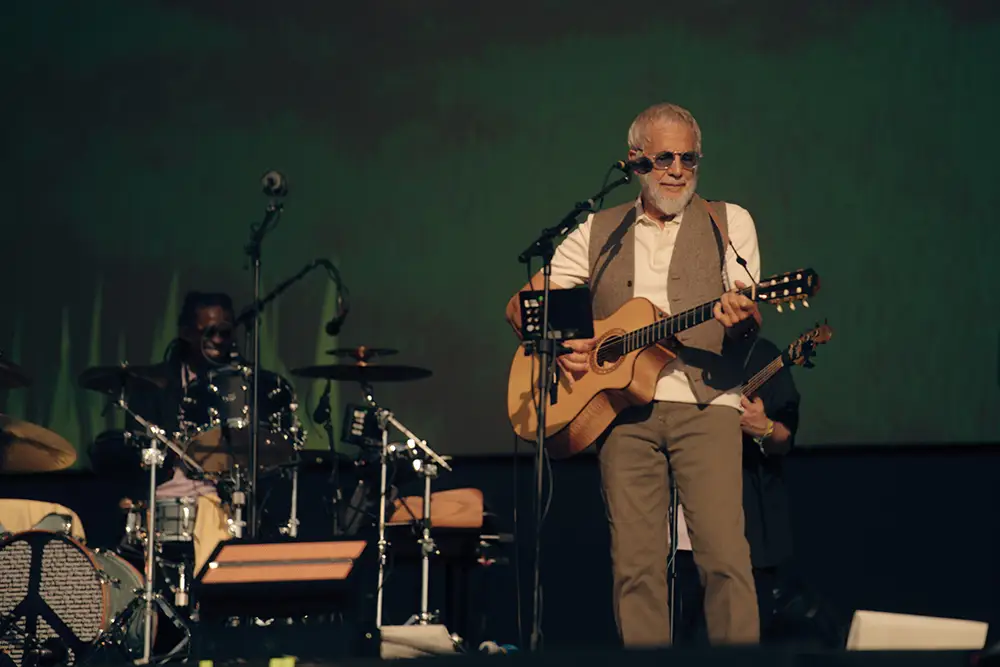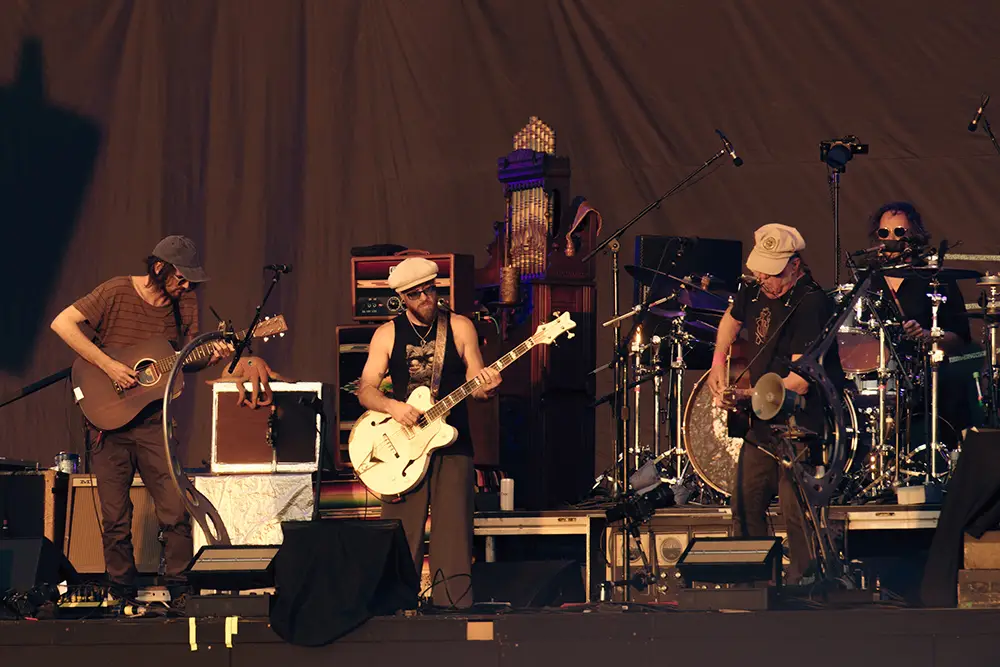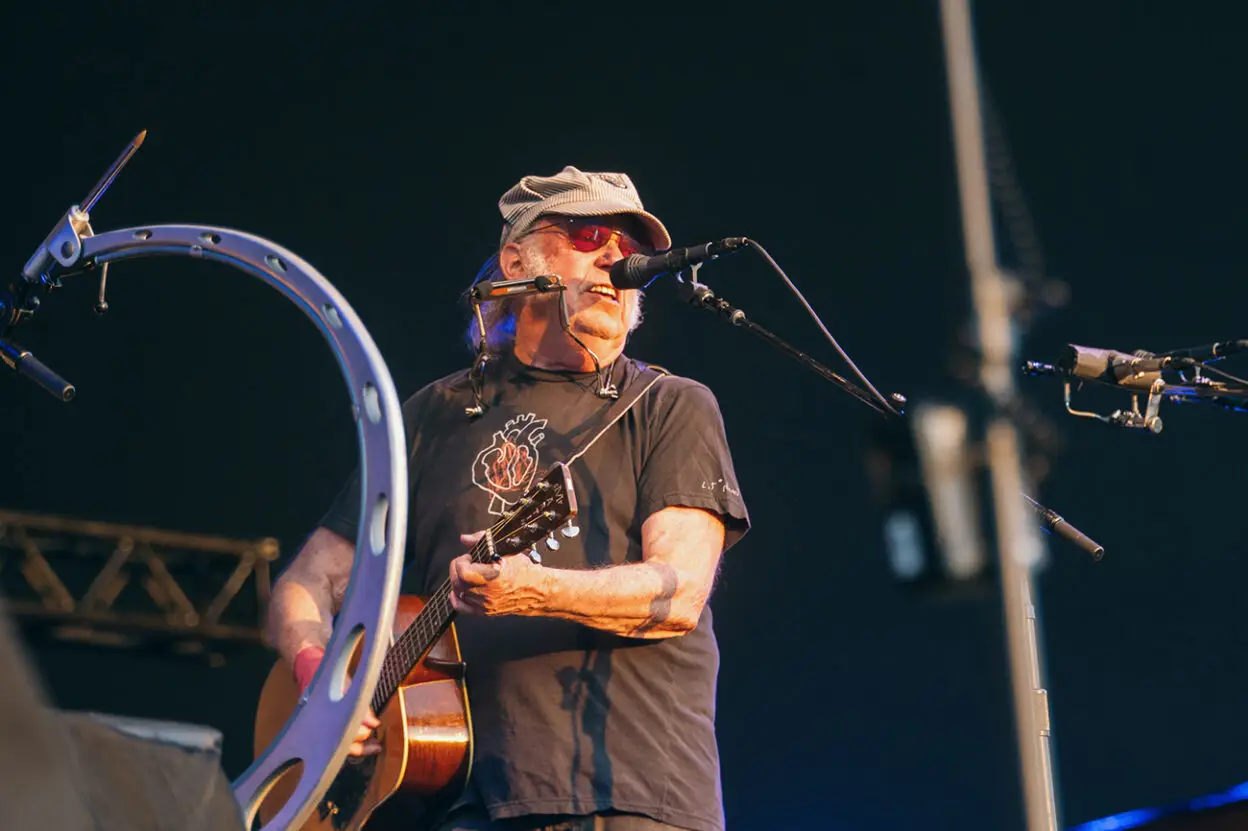The first four headliners of this year’s BST Hyde Park festival were all under thirty, celebrating the energy and optimism of youth. But with Neil Young and the Chrome Hearts joined by Cat Stevens (Yusuf Islam) as main support, this night paid homage to rock’s elder statesmen — artists whose songs have shaped generations.
With temperatures soaring to 30°C, many were astonished to see Yusuf Islam — on the verge of turning 77 — emerge looking radiant in a thick waistcoat, unfazed by the heat. As he began “The Wind,” it was clear his voice remained beautifully intact. While he skipped “Morning Has Broken,” Yusuf delivered timeless renditions of “Father and Son” and “The First Cut Is the Deepest,” proving once again that the originals reign supreme.

This year marks the 50th anniversary of Yusuf’s Numbers album, yet he chose not to acknowledge it, instead commemorating the 30th anniversary of the Srebrenica massacre in Bosnia with “The Little Ones,” a song originally released in support of Bosnian war victims. While no one in the 65,000-strong crowd would disagree with remembering Srebrenica, the mood shifted as Yusuf launched into extended political monologues about Palestine. Despite these detours, he was warmly applauded for completing his set without succumbing to the strict Hyde Park curfew.
Neil Young and the Chrome Hearts took to the stage promptly, with no dramatic build-up — no backing tracks or elaborate visuals. Just Young and his band stepping up quietly and launching straight into “Ambulance Blues.” Like Yusuf before him, Young’s voice was remarkably strong. Even the heavy, ragged rock sound didn’t blunt the power of lines like, “And there ain’t nothin’ like a friend who can tell you you’re just pissin’ in the wind.”
The intensity continued with a blistering “Cowgirl in the Sand,” a ten-minute jam that echoed his Crazy Horse days.
A lifelong activist, Young’s environmental urgency felt especially pointed under the scorching Hyde Park sun. The title of his current tour, Love Earth, rang true as he tore into “Be the Rain,” an anthemic plea to “save the planet for another day,” which had the crowd stomping along. His performance of “After the Gold Rush” carried extra weight as he updated the lyric “Look at mother nature on the run in the nineteen seventies” to “twenty-first century,” bringing a chilling relevance.
Despite the heavy themes, Young showed flashes of humour. On “F***in’ Up,” he gleefully dedicated the song to himself, poking fun at his own imperfections. The set featured moments of nostalgia with Crosby, Stills, Nash & Young numbers like “Looking Forward” and “Name of Love,” the latter unifying the crowd with its simple plea: do it in the name of love.

Of course, he didn’t neglect fan favourites. “Cinnamon Girl,” “Southern Man,” “Harvest Moon,” and “Old Man” all turned Hyde Park into one massive, collective singalong. For the encore, Young followed the trend of extending a final song into a cathartic climax, but he took it even further. Closing with the fiercely charged “Rockin’ in the Free World,” Young and the Chrome Hearts played well past curfew, ultimately having the sound cut off during the final minute — a defiant, fittingly rebellious finale.
This BST night shattered the festival’s usual apolitical atmosphere. While politics worked best when woven subtly through the songs, Young’s spoken words were few and heartfelt — expressing gratitude for the audience’s unity. In a time of rising global and domestic tensions, it would have been surprising if he hadn’t addressed them at all.
Neil Young and the Chrome Hearts balanced heavy, urgent themes with moments of warmth and joy, leaving the Hyde Park crowd elevated and united. A powerful reminder that great music doesn’t just entertain — it stirs, challenges, and ultimately brings people together.


Be the first to comment